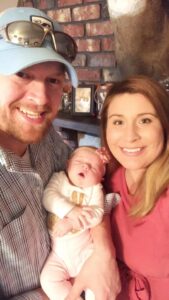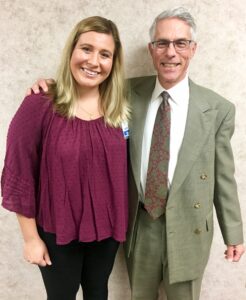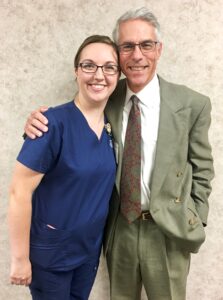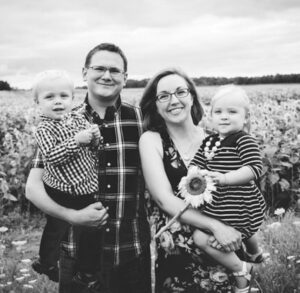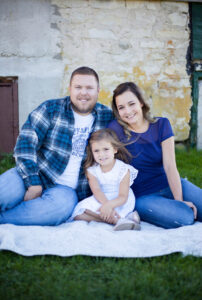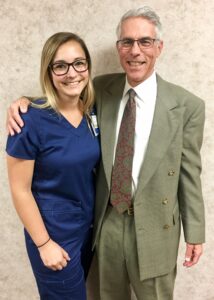I have been at Green Bay Oncology caring for patients for nearly eleven years. I am used to being in charge, having the answers, the results, the plan.
Since I have always been a perfectionist and need to control things, part of empathizing with my patients is treating them the way I’d want my family treated. I love dotting the i’s and cross the t’s for them.
I have had some pretty emotional days at work. Lots of them, in fact. But despite delivering hard news to countless others, I still never thought I’d be on the other side with my father getting this news.

But now I know the other side is filled with emotions one can only explain when they’ve been there. There’s overwhelming worry. Tears consume quiet moments in the car. But there’s also the battle to stay positive, to not worry, and to balance faith, hope, and reality. And there’s that darkness back there where you don’t want to go…the worse case scenario.
This is the struggle, the minute by minute, day to day of what being on the other side is like.
And though all I really want to do is control everything, I realize there is really nothing I can control. Suddenly the bloodwork, talks of scans, pathology, biopsy… are all so fast. These words are common to me, they are my everyday lingo. It is getting thrown at him so fast but he doesn’t understand what the biopsy means? Who cares about the grade? What the hell is adenocarcinoma anyways? We review the guidelines…then the real question, “Can it be cured?” he asks “How will this change me and how will my life be different?”.
But you know what? I really just want to be his daughter. I want to pretend everything is ok.

The fact is that we really haven’t even started treatment yet, and there are way too many uncertainties about the future. But I know everything has changed. I have been walking around in a “bubble” thinking it couldn’t happen to us. Well, here we are, on the other side. The side where you have very little control of anything. The side where you don’t really sleep well anymore. The side where your brain makes you come face to face with possible loss and the perpetual “What if?”. The side where you choose hope and faith EVERY TIME because it’s really the only thing you have.
I have learned a lot from this moment on the other side. Even when he beats this, we will still have appointments, labs, “stuff” that will forever make us to some degree worry about cancer.
As I treat patients, I will always try to remember what it is really like to be on the other side.






